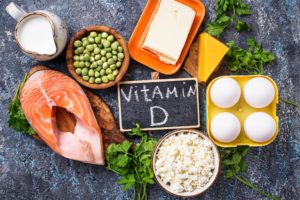 Vitamins are healthy, and you need them to survive. But sometimes, you can get too much of a particular vitamin or mineral, and it can lead to health problems.
Vitamins are healthy, and you need them to survive. But sometimes, you can get too much of a particular vitamin or mineral, and it can lead to health problems.
Vitamin toxicity is the opposite of a vitamin deficiency. You surely hear a lot about vitamin deficiencies in America: there are some rather common ones. There are also a lot of supplements to sell!
Advertisement
Some vitamins, like vitamin D, are useful in supplemental form. It’s not highly available from food, so supplements help ensure you get enough of it. But like other vitamins and minerals, too much is not healthier; in fact, the opposite is true.
Some vitamins and minerals are stored in your body, and when levels get too high, it can lead to unwanted complications. For example, vitamin D is stored in your fat cells. Unlike water-soluble vitamins, any extra intake is not expelled in urine. So, when too much accumulates, it can lead to a condition called hypocalcemia—the buildup of too much calcium in your bones.
Hypocalcemia can cause vomiting, nausea, weakness, and frequent urination. To reach toxic levels of vitamin D, you’d have to take a massive dose of around 60,000 IU per day. However, unless otherwise instructed by your doctor, there is likely little point in taking more than 1,000 IU per day,
Other common vitamins and minerals that can become toxic include:
- Vitamin A
- Vitamin E
- Vitamin K
- Iron
- Calcium
Advertisement
One thing to remember is that it’s virtually impossible to reach toxic levels of vitamins and minerals through whole foods. Rather, toxic levels can be reached by combining mega-dosed fortified foods and supplements. So, before electing to supplement, take a look at your overall diet.
If you’ve got juice and bread that’s fortified or enriched with vitamin D, for example, you likely don’t need a mega-dosed supplement. This is especially true if you’re also getting adequate sunlight exposure each day.
So be careful when it comes to supplementation. In high amounts, regularly healthy nutrients can present a health risk. Thankfully, fixing the problem is typically as easy as reducing intake.
